The central report, presented by Comrade Tong Quang Thin, Member of the Standing Committee of the Provincial Party Committee and Permanent Vice Chairman of the Ninh Binh Provincial People's Committee, clearly stated: From a regional and local governance perspective, Ninh Binh province is gradually implementing a number of solutions to harmoniously resolve the relationship between the restoration and preservation of cultural heritage and socio-economic development, and has initially achieved certain results.
The socio-economic development orientation of Ninh Binh province in the coming period is defined as "Rapid and sustainable development, economic development coupled with social equity and progress, based on maximizing the outstanding potential, unique values and unique advantages of the locality, with the core being the preservation and promotion of cultural and historical heritage, natural landscapes and the fine traditions of the people and land of the ancient capital of Hoa Lu as resources and driving forces for development," aiming to build Ninh Binh province into a centrally-governed city with the criteria of a natural heritage city.
In this context, the industrial sector is identified as the driving force and foundation for rapid and sustainable socio-economic development, creating a basis for effective exploitation and protection of the cultural and historical values of the Trang An World Cultural and Natural Heritage Site, promoting tourism development as a key economic sector, and striving to become a major tourism center of the country and the region. Accordingly, the three general aspirations and goals of Ninh Binh province until 2030, with a vision to 2050, are defined as follows: to be one of the relatively prosperous provinces with comprehensive, rapid, and sustainable development in the Red River Delta region; to be one of the national-level and internationally-class tourism centers; and to be a livable, safe, and friendly land.
To achieve that goal, Ninh Binh has been proposing and implementing several solutions such as: Clearly defining the issues and innovating the way of thinking about the restoration and preservation of cultural heritage associated with socio-economic development; Regularly innovating the methods and approaches of propaganda, promotion, and attracting investors; Promoting the construction of heritage cities associated with the 4.0 urban model, so that Ninh Binh is one of the gateways and a connecting center with the world; creating an ideal living environment for merchants and their families from all over the world; sustainable development with the support of technology associated with the circular economy; allowing piloting of a modern urban government model; Building an environment to test new, creative ideas associated with new trends such as blockchain technology, knowledge economy, digital economy, and circular economy; The development strategy for the cultural industry should be focused, targeted, and have a roadmap towards professionalism and modernization, leveraging local advantages and conforming to the basic laws of the market economy. It should be placed within the overall socio-economic development, ensuring unity and synergy among sectors and stages of creation, production, distribution, and consumption.
At the same time, developing the cultural industry is closely linked to promoting the image of Ninh Binh's land and people, contributing to the protection and promotion of national cultural identity in the process of international exchange, integration, and cooperation. With the approach of selecting key projects, it is necessary to create a number of key cultural industry products to establish a brand, develop, and contribute to the growth and revenue of the locality.
From a comprehensive resource mobilization perspective, not only in terms of financial resources, Ninh Binh province is promoting innovation in the methods of mobilizing, allocating, and effectively utilizing resources, focusing on: Strengthening the sustainability of state budget resources in both scale and structure through the continued implementation of solutions to restructure the economy associated with the transformation of the growth model and comprehensive solutions on taxes and fees as prescribed; Enhancing the efficiency of mobilizing, allocating, and utilizing public financial resources; ensuring "public investment leads investment," "public investment attracts social investment," directing public resources to areas where the private sector cannot participate, or simultaneously contributing to the formation of platforms that "stimulate" the participation of the private sector through appropriate incentive and support mechanisms; Allocation should be based on the principle of competition, increasing concentration, focusing on areas that generate economic value linked to employment and provincial budget revenue; promoting solutions to improve the investment and business environment, unlocking resources and boosting the development of the private sector, in line with the local investment attraction and socio-economic development orientation, thereby contributing to economic growth, job creation, increased income for people and creating more room for state budget revenue.

In his presentation, Associate Professor Dr. Dang Van Bai, Vice Chairman of the National Council for Cultural Heritage, on the topic "Cultural Heritage - A 'Capital' for Socio-Economic Development," stated the following viewpoint: The Resolution of the 13th National Congress of the Communist Party of Vietnam clearly defined the national development orientation for the period 2021-2030 as continuing to strongly innovate thinking, building and comprehensively perfecting the institutional framework for sustainable development in economics, politics, culture, society, and the environment, promptly addressing difficulties and obstacles, unleashing all potential and resources, and creating new impetus for the rapid and sustainable development of the country. In line with the main spirit of these major orientations, the Ministry of Culture, Sports and Tourism must also innovate its thinking, awareness, and practical actions towards the sustainable preservation of cultural heritage, creating new impetus to serve the country's development goals, including the goal of building a comprehensively developed Vietnamese culture and people. Therefore, sustainable preservation of cultural heritage is crucial. This will create new momentum to serve the country's development goals.

Associate Professor Pham Hong Tung from Vietnam National University, Hanoi, presented a paper titled "On the key issue in preserving and promoting cultural heritage values for community happiness: Identifying the owners of heritage." The paper emphasized the importance of preserving and promoting heritage values for the cultural well-being of the people, in accordance with President Ho Chi Minh's ideology on the rights and capacity to enjoy culture and cultural welfare.

Professor Dinh Xuan Dung, a member of the Central Council for Literary and Artistic Criticism, presented a paper on "The Relationship Between Stakeholders in the Process of Restoring, Preserving, and Promoting the Value of Cultural Heritage from Regional and Local Practices," stating: The major lesson here is that restoring and preserving cultural heritage in conjunction with the goal of contributing to socio-economic development is correct and necessary, but it is not the only goal. Some cultural and historical heritages, when restored, preserved, and promoted, may not immediately generate economic profit, but the greatest "gain" is "human capital"—love for the country and nation, gratitude and pride in tradition, self-confidence, solidarity, and affection...
Professor Tran Tri Doi from Hanoi National University presented a paper titled "The Hypothesis of Corresponding Place Names Between Thang Long Capital and Hoa Lu Ancient Capital: The Issue of Restoration and Exploitation of Cultural Values for Tourism Activities." He shared his thoughts on how to restore the current state of relics related to place names in Hoa Lu Ancient Capital and proposed ways to exploit the traditional cultural values of those places to serve tourism activities in Ninh Binh province.
The presentation "The Value of the Hoa Lu Citadel Heritage and Recommendations," delivered by Associate Professor Dr. Tong Trung Tin, President of the Vietnam Archaeological Association, assessed the Hoa Lu Ancient Capital as a vast and unique capital with rich and diverse architectural remains; the most unique relic identified is the citadel walls. Therefore, the Vietnam Archaeological Association recommends conducting a comprehensive study of the entire structure of the Hoa Lu Ancient Capital's citadel walls, gradually restoring the entire appearance of the Hoa Lu Ancient Capital in various forms, transforming the entire Hoa Lu Capital into a magnificent national capital at the beginning of the period of national independence into a representative historical and cultural park of Vietnam in the 10th and early 11th centuries.

Professor Dr. Le Hong Ly, from the Vietnam Folk Arts Association, presented a paper on the topic "Museumization of folk culture in the community - the right direction in restoring, preserving and promoting the values of intangible cultural heritage." He emphasized solutions to effectively exploit this potential so that the heritage can both remain vibrant and attract tourists, ensuring its long-term vibrancy and existence alongside the lives of the people, contributing to the economic, cultural, and social development of Ninh Binh province in particular and Vietnam in general, worthy of what our ancestors painstakingly built.
Mr. Peng Shiduan, Cultural Counselor of the Chinese Embassy in Vietnam, presented on experiences gained from cultural heritage sites in China, offering some suggestions for Ninh Binh province in protecting cultural heritage in conjunction with tourism development. Listening to the presentations revealed that Vietnam has conducted in-depth research on cultural heritage, providing valuable experience for raising awareness of heritage preservation and protection. In addition, attention should be paid to the legal framework for the restoration and reconstruction of heritage sites; heritage protection should be prioritized in tourism development; and science and technology should be applied to enhance the digitalization of heritage management activities.

Professor, Doctor, and People's Teacher Nguyen Quang Ngoc, Vice President of the Vietnam Historical Science Association, presented a paper titled "The Heritage Route: From Hoa Lu Capital in the 10th Century to Hoa Lu Millennium Heritage City in the 21st Century." His presentation provided insights into Hoa Lu Capital in the 10th century and Hoa Lu Millennium Heritage City in the early 21st century, affirming the process of moving towards a leading, civilized, and modern millennium heritage city in the country and of international stature, while also gradually fulfilling the criteria for Ninh Binh to become a centrally-governed city.
Speaking at the conference, Dr. Phung Quoc Hien, former member of the Central Committee of the Communist Party of Vietnam and former Vice Chairman of the National Assembly of the Socialist Republic of Vietnam, affirmed the positive aspects of Ninh Binh as a model in regional and local governance. He stated that Ninh Binh today is a museum of nature, history, culture, and society. Therefore, he proposed four key areas for attention: cultural heritage sites need comprehensive planning; resources from the State, the people, and businesses must be allocated effectively, implementing the principle of "the State and the people working together"; regional governance needs to be improved, mobilizing the participation of the people; and the Ministry of Culture, Sports and Tourism needs to refine and amend the Law on Cultural Heritage to suit current realities.

The workshop heard a presentation by Associate Professor, Dr. Architect Nguyen Hong Thuc from Hanoi National University on "The Continuing Value of Millennium Heritage Ecosystems in Contemporary Development," addressing issues such as: Heritage can be integrated into society through innovative operational models for sustainable urban development; the model of world heritage value through natural ecosystem services and heritage ecosystem services; and the role of culture and history as drivers of heritage economics in heritage area development and spatial connectivity. Therefore, it is necessary to develop a framework for assessing the development potential of millennium heritage cities and to identify the core structure of millennium heritage cities.
Associate Professor Dr. Vu Hung Cuong, Director of the Institute of Social Sciences Information, Vietnam Academy of Social Sciences, presented a paper on "Restoring and Preserving Cultural Heritage in conjunction with Tourism Development in Vietnam Today," stating that: Restoring and preserving cultural heritage in Vietnam is of great importance, contributing to the protection, preservation, and transmission of cultural values of the past, while also supplementing tourism resources and increasing contributions to local and national budgets.
In the afternoon, the conference continued with presentations and discussions in thematic sessions.
Ninh Binh Newspaper will continue to update the content of the Workshop.
Phan Hieu-Hong Van-Minh Quang
⇒ International scientific conference "Addressing the relationship between cultural heritage restoration and preservation and socio-economic development: Perspectives from regional and local governance"
Source



![[Photo] Prime Minister Pham Minh Chinh holds a phone call with the CEO of Russia's Rosatom Corporation.](/_next/image?url=https%3A%2F%2Fvphoto.vietnam.vn%2Fthumb%2F1200x675%2Fvietnam%2Fresource%2FIMAGE%2F2025%2F12%2F11%2F1765464552365_dsc-5295-jpg.webp&w=3840&q=75)



![[Photo] Closing Ceremony of the 10th Session of the 15th National Assembly](/_next/image?url=https%3A%2F%2Fvphoto.vietnam.vn%2Fthumb%2F1200x675%2Fvietnam%2Fresource%2FIMAGE%2F2025%2F12%2F11%2F1765448959967_image-1437-jpg.webp&w=3840&q=75)
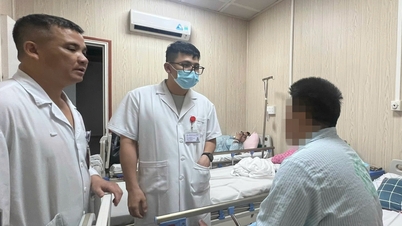

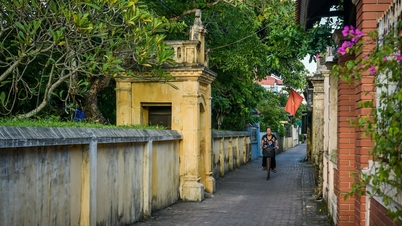

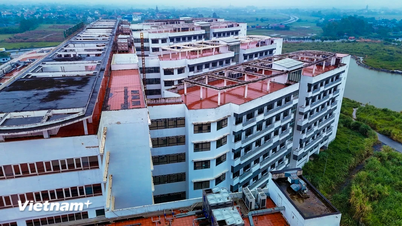

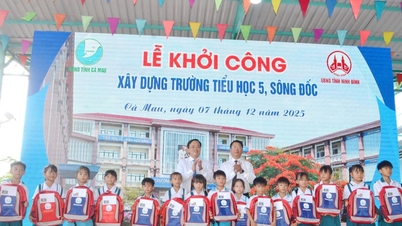



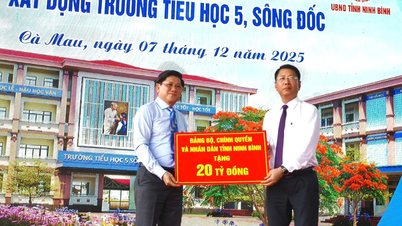

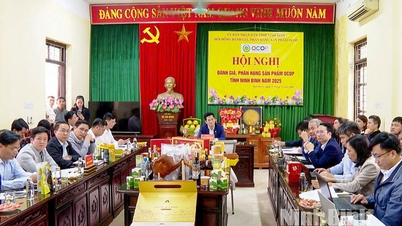

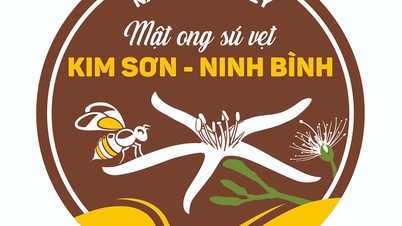
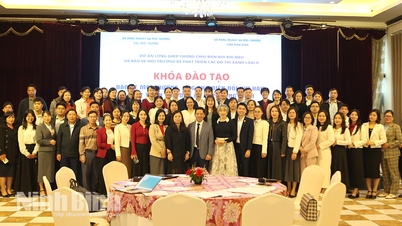
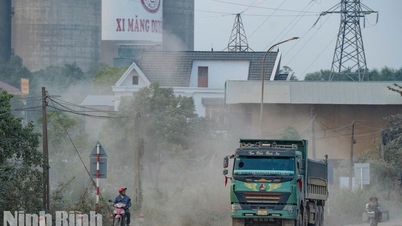
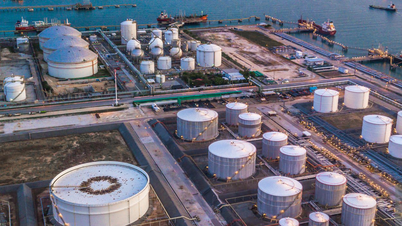
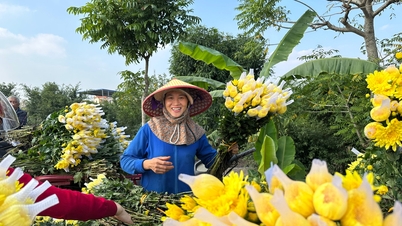




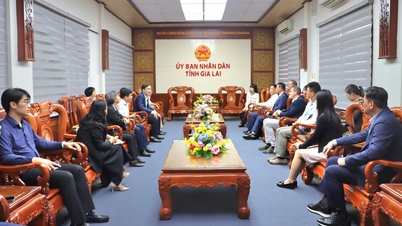


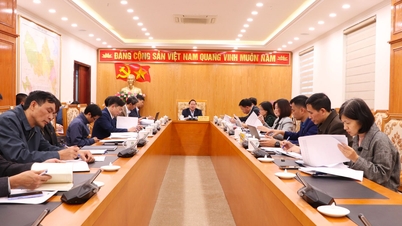
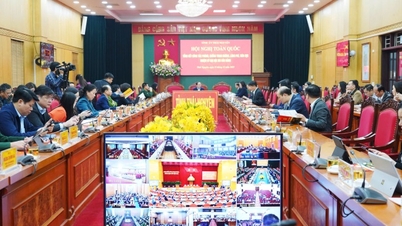



















![[OFFICIAL] MISA GROUP ANNOUNCES ITS PIONEERING BRAND POSITIONING IN BUILDING AGENTIC AI FOR BUSINESSES, HOUSEHOLDS, AND THE GOVERNMENT](https://vphoto.vietnam.vn/thumb/402x226/vietnam/resource/IMAGE/2025/12/11/1765444754256_agentic-ai_postfb-scaled.png)




























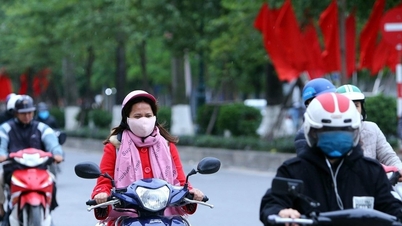

![[Infographic] Preventing students from making their own firecrackers: 7 things parents need to know](https://vphoto.vietnam.vn/thumb/402x226/vietnam/resource/IMAGE/2025/12/11/1765466656703_img_0320_20251211183542.jpeg)

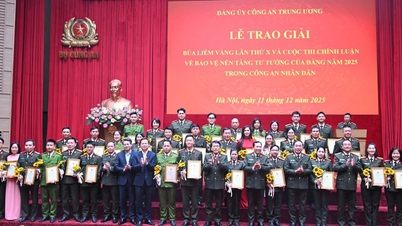

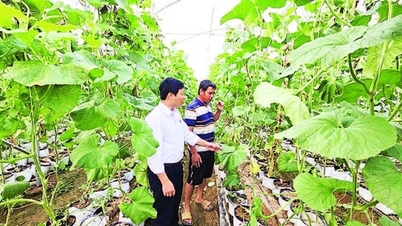
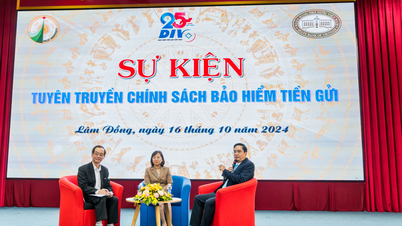

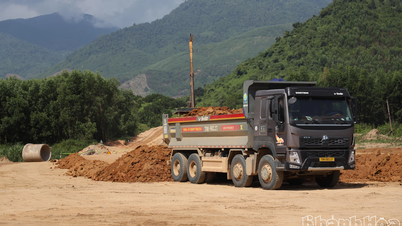














Comment (0)